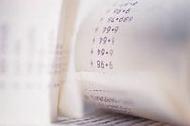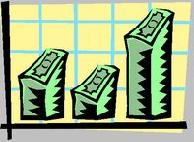
 |
|
| Financial Terms | |
| Personal Assets |
|
Information about financial, finance, business, accounting, payroll, inventory, investment, money, inventory control, stock trading, financial advisor, tax advisor, credit.
Main Page: credit, inventory, financial advisor, tax advisor, inventory control, financial, accounting, business, Also see related: homebuyer, condo, financing, credit, mortgage, homebuying, buy home, home buyer, home, |
Definition of Personal Assets
Personal Assetsassets, the title of which are held personally rather than in the name of some other legal entity.
Related Terms:Estate PlanningAn insurance program designed to provide funds for insured's dependents upon death of the insured, and to also conserve, as much as possible, the personal assets that the insured wants to bequeath to heirs. Acquisition of assetsA merger or consolidation in which an acquirer purchases the selling firm's assets. AssetsA firm's productive resources. Assets requirementsA common element of a financial plan that describes projected capital spending and the Current assetsValue of cash, accounts receivable, inventories, marketable securities and other assets that Exchange of assetsAcquisition of another company by purchase of its assets in exchange for cash or stock. Financial assetsClaims on real assets.  Long-term assetsValue of property, equipment and other capital assets minus the depreciation. This is an Net assetsThe difference between total assets on the one hand and current liabilities and noncapitalized longterm Non-reproducible assetsA tangible asset with unique physical properties, like a parcel of land, a mine, or a Other current assetsValue of non-cash assets, including prepaid expenses and accounts receivable, due Personal tax view (of capital structure)The argument that the difference in personal tax rates between Personal trustAn interest in an asset held by a trustee for the benefit of another person. Publicly traded assetsassets that can be traded in a public market, such as the stock market. Quick assetsCurrent assets minus inventories. Real assetsIdentifiable assets, such as buildings, equipment, patents, and trademarks, as distinguished from a  Reproducible assetsA tangible asset with physical properties that can be reproduced, such as a building or Residual assetsassets that remain after sufficient assets are dedicated to meet all senior debtholder's claims in full. Return on assets (ROA)Indicator of profitability. Determined by dividing net income for the past 12 months Return on total assetsThe ratio of earnings available to common stockholders to total assets. ASSETSAnything of value that a company owns. Current assetsCash, things that will be converted into cash within a year (such as accounts receivable), and inventory. RATE OF RETURN ON TOTAL ASSETSThe percentage return or profit that management made on each dollar of assets. The formula is: AssetsThings that the business owns. Current assetsAmounts receivable by the business within a period of 12 months, including bank, debtors, inventory and prepayments. Fixed assetsThings that the business owns and are part of the business infrastructure – fixed assets may be Intangible fixed assetsNon-physical assets, e.g. customer goodwill or intellectual property (patents and trademarks). Tangible fixed assetsPhysical assets that can be seen and touched, e.g. buildings, machinery, vehicles, computers etc. AssetsItems owned by the company or expenses that have been paid for but have not been used up. Intangible assetsassets owned by the company that do not possess physical substance; they usually take the form of rights and privileges such as patents, copyrights, and franchises. current assetsCurrent refers to cash and those assets that will be turned fixed assetsAn informal term that refers to the variety of long-term operating return on assets (ROA)Although there is no single uniform practice for Fixed Assets Turnover RatioA measure of the utilization of a company's fixed assets to Return on Total Assets RatioA measure of the percentage return earned on the value of the Total Debt to Total Assets RatioSee debt ratio Other assetsA cluster of accounts that are listed after fixed assets on the balance sheet, financial assetsClaims to the income generated by real assets. Also called securities. real assetsassets used to produce goods and services. Personal Responsibility and Work Opportunity Reconciliation ActA federal Act requiring the reporting of new hires into a national database. Preferred Stock Stock that has a claim on assets and dividends of a corporation that are priorto that of common stock. Preferred stock typically does not carry the right to vote. Realizable Revenue A revenue transaction where assets received in exchange for goods andservices are readily convertible into known amounts of cash or claims to cash. Current AssetsCash and other company assets that can be readily turned into cash within one year. Fixed AssetsLand, buildings, plant, equipment, and other assets acquired for carrying on the business of a company with a life exceeding one year. Normally expressed in financial accounts at cost, less accumulated depreciation. Longer-Term Fixed Assetsassets having a useful life greater than one year but the duration of the 'long term' will vary with the context in which the term is applied. Personal GuaranteeA legal document whereby an individual takes responsibility for payment of debt or performance of some obligation if the person/company primarily liable fails to perform. Personal Overdraft FacilityA loan facility on a customers account at a financial institution allowing the customer to overdraw up to a certain agreed limit for an agreed period. personal loanA lump sum that you borrow from a financial institution for a specified period of time. To repay the loan, you pay interest on the entire lump sum, and make payments on a scheduled basis. PIN (personal identification number)A secret code that you use to access your bank account at a bank machine or at a point of sale (POS) terminal. You may also have a PIN for banking by telephone. personal line of credit (PLC)A revolving source of credit with a pre-established limit. You access the funds only as you need them, and any amount that you pay back becomes accessible to you again. Unlike a personal loan, a PLC permits you to write cheques and make bank machine withdrawals, and requires you to pay interest only on the funds that you actually use. Personal Line of credit (Credit Insurance)A bank's commitment to make loans to a borrower up to a specified maximum during a specific period, usually one year. Related to : financial, finance, business, accounting, payroll, inventory, investment, money, inventory control, stock trading, financial advisor, tax advisor, credit. |